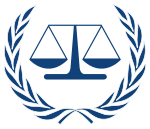- United Nations General Assembly Resolution 3314
-
United Nations General Assembly Resolution 3314 (XXIX) (Definition of Aggression) was adopted by the United Nations General Assembly on December 14, 1974 as a non-binding recommendation to the United Nations Security Council on the definition it should use for the crime of aggression.[1]
Contents
Background
The adoption of the definition was the culmination of a long process begun in 1923 under the auspices of the League of Nations. In December 1967 the General Assembly adopted Resolution 2330 (XXII), which established a Special Committee on the Question of Defining Aggression. This body comprised 35 member states.[2] After seven years, it reported back to the General Assembly with draft proposals that formed the basis of the final Definition of Aggression.[3]
The definition of aggression
The definition makes a distinction between aggression (which "gives rise to international responsibility") and war of aggression (which is "a crime against international peace"). Article 3 "in accordance with the provisions of article 2", defines certain acts as aggression, such as armed invasions or attacks, bombardments, blockades, armed violations of territory, permitting other states to use one's own territory to perpetrate acts of aggression and the employment of armed irregulars or mercenaries to carry out acts of aggression. Article 2 states that the first use of force in contravention of the UN Charter will be prima facie evidence of aggression, but the Security Council has the authority to determine that given the circumstances aggression has not taken place. A war of aggression is a series of acts committed with a sustained intent. The definition's distinction between an act of aggression and a war of aggression make it clear that not every act of aggression would constitute a crime against peace; only war of aggression does. States would nonetheless be held responsible for acts of aggression.
Criticisms of the definition
The wording of the definition has been criticised by many commentators. Its clauses on the use of armed irregulars are vague, as it is unclear what level of "involvement" would entail state responsibility. It is also highly state-centric, in that it deems states to be the only actors liable for acts of aggression. Domestic or transnational insurgent groups, such as those that took part in the Sierra Leone Civil War and the Yugoslav Wars, were key players in their respective conflicts despite being non-state parties; they would not have come within the scope of the definition.
The Definition of Aggression also does not cover acts by international organisations. The two key military alliances at the time of the definition's adoption, NATO and the Warsaw Pact, were non-state parties and thus were outside the scope of the definition.[4] Moreover, the definition does not deal with the responsibilities of individuals for acts of aggression. It is widely perceived as an insufficient basis on which to ground individual criminal prosecutions.[5]
The definition is not binding on the Security Council. The United Nations Charter empowers the General Assembly to make recommendations to the United Nations Security Council but the Assembly may not dictate to the Council. The resolution accompanying the definition states that it is intended to provide guidance to the Security Council to aid it "in determining, in accordance with the Charter, the existence of an act of aggression".[1] The Security Council may apply or disregard this guidance as it sees fit. Legal commentators argue that the Definition of Aggression has had "no visible impact" on the deliberations of the Security Council.[6]
See also
References
- ^ a b Yoram Dinstein, War, Aggression and Self-Defence, p. 118. Cambridge University Press, 2003
- ^ United Nations General Assembly Resolution Need to expedite the drafting of a definition of aggression in light of the present international situation page 2 on 18 December 1967
- ^ United Nations General Assembly Resolution Definition of aggression page 1
- ^ Ingrid Detter Delupis, The Law of War, pp. 69-70. Cambridge University Press, 2000
- ^ L.F. Damrosch, "Enforcing International Law through Non-forcible Measures", p. 202. Recueil De Cours/Collected Courses, Académie de Droit International de La Haye, 1998
- ^ M.C. Bassiouni and B.B. Ferencz, "The Crime against Peace", International Criminal Law, I, 313, 334 (M.C. Bassiouni ed., 2nd ed., 1999)
External links
- Text of Resolution 3314
- A Brief Primer on International Law With cases and commentary. Nathaniel Burney, 2007.
- Official United Nations website
- Official UN website on International Law
- Official website of the International Court of Justice
International Criminal Court (ICC) Legal texts International Rome Statute (amendments) · Agreement on Privileges and Immunities · Agreements on the Enforcement of Sentences · Geneva Conventions · United Nations CharterUN resolutions General Assembly 3314Security Council National American Service-Members' Protection Act (United States) · Crimes Against Humanity and War Crimes Act (Canada) · International Criminal Court Act 2001 (United Kingdom) · Twenty-third Amendment of the Constitution (Ireland) · Völkerstrafgesetzbuch (Germany)
Crimes Organisation States parties List of states parties · Presidents and Vice-Presidents of the Assembly of States Parties · Review ConferenceCourt Presidency · Judges (election, 2011)Investigations Official Complaints IraqIndividuals Detainees · IndicteesOther American Non-Governmental Organizations Coalition for the ICC · Coalition for the ICC · European Union and the ICC · United States and the ICC · World Day for International JusticeCategories:- United Nations General Assembly resolutions
- International Criminal Court
- Peace
- 1974 in law
- Crime of aggression
- 1974 in international relations
Wikimedia Foundation. 2010.
